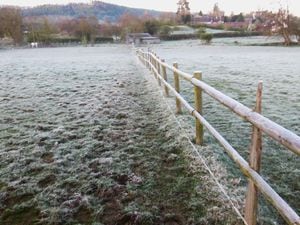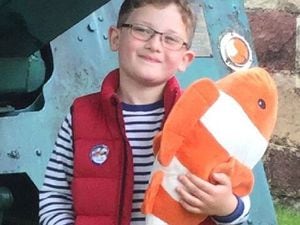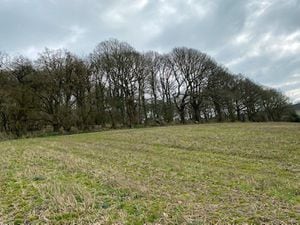How green lifestyle led to dream home in the Shropshire Hills
Many people in their thirties would be delighted to get on the property ladder and get a mortgage.
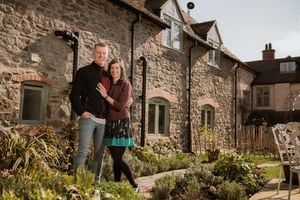
But one entrepreneurial couple from Shropshire are now mortgage-free – and it’s all down to being eco-minded.
Tom and Emily Hunt live deep in the Shropshire Hills, near Church Stretton, in a 200-year-old converted coach house – but it wasn’t handed to them.
While Tom doesn’t have an explanation for why he was interested in sustainability, he knows it was present in his Shrewsbury childhood.
“I would pick up dropped litter while walking around town, he says. “It was just there and it wasn’t where it should have been, so I picked it up. My friends used to call me Captain Planet, after a cartoon on the TV at the time.”
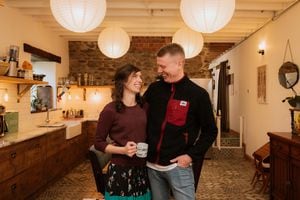
When he finished university in Sheffield, Tom’s first full-time job was working for a company which outsourced the manufacturing of products for the music industry like CD packaging.
“There was lots of wastage from samples that went in magazines and they would just go in the bin every month,” he says.
“I really wanted to recycle everything we could, but the boss wasn’t really interested, but I felt it was our duty. I wanted to start looking at more environmental ways of manufacturing things and thought I could do this on my own and I saw a niche because nobody was doing anything ecological in 2006 when I started having these thoughts.”
In 2007 Tom set up his own company Breed, which made products for the music and media industry.
“I went about finding every single way we could do it in an ecological fashion in terms of the products we made and in terms of things you couldn’t mitigate like being carbon neutral and offsetting our emissions, which was still pretty niche and finding its feet,” he continues.
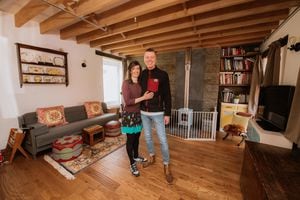
“It was often seen as ‘greenwash’ because what they used to do was plant trees. So you would calculate how much Co2 that a product made from cradle to grave and plant a certain number of trees which would offset a certain amount. That’s great but the payback period is very long and people were very dubious. I wanted to do it in a much more credible way.”
Tom invested in a solar oven scheme in Africa which would give villages a safe way to cook so they no longer needed to burn firewood and coal – which he said would have an more instantaneous impact but with secondary benefits too.
“Villages were able to spend more time at the homestead, there were fewer injuries, it was all certificated so we could show what we had done and how many ovens we were able to provide, and all this gave us more credibility.
“The company was able to ride a crest of a wave because we go ahead of the curve.”
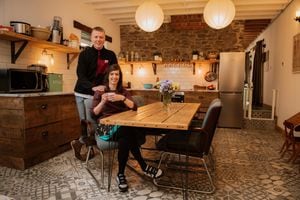
While all this was going on, Tom was running the business from a terraced house that he had bought for £128,000, taking advantage of five per cent deposits available at the time to put down a small deposit.
When he and Emily sold their separate homes, they could then put down a larger deposit on a shared property.
They took a calculated risk that they would get planning permission to build on the plot, and in 2009 they got planning permission to turn it into an eco-house.
“It was designed to be built to the same standards of a passive house so it didn’t really need to be heated, there was lots of glass to take advantage of passing solar gain, so the sun would heat the house because it was all on the south facade and there was argon filled glass to keep the heat in,” he says.
The Hunts moved into the award winning eco-home, letting out their terraced property.

“I realised I was working all the time, I wasn’t taking any holidays, I was tired and always up against the deadlines,” says Tom.
“By this time vinyl was exploding again. It was companies like mine that were able to create value added packaging which became artefacts for bands and was the antithesis of digital which had become very disposable.”
Tom liked having a boutique business he had control over, and felt he would ended up in a situation where he would be extracted from a company.
He spent the next 18-months increasing the company’s value before selling it to a competitor.
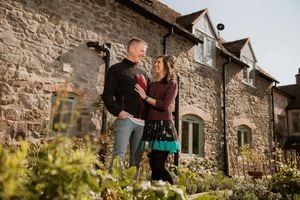
The Hunts sold their eco-home for £300,000, bought a family home near Church Stretton and built holiday cottages on the neighbouring land.
“We went into this completely different industry with a completely different pace of life,” he says. “A barn conversion is a lot harder than building a house.”
But Tom did use his experience of building the eco-home in Sheffield to apply the finishing touches to the converted home.
One example of this was half the wall in the front room in which we sit which was rough sawn timber which was coated in PVA glue and laid with the top ply of some vintage napkins and dried on and sealed with a varnish.
“It creates something completely different which I’ve never seen before,” he says. “Everything in here was sourced by me.”


